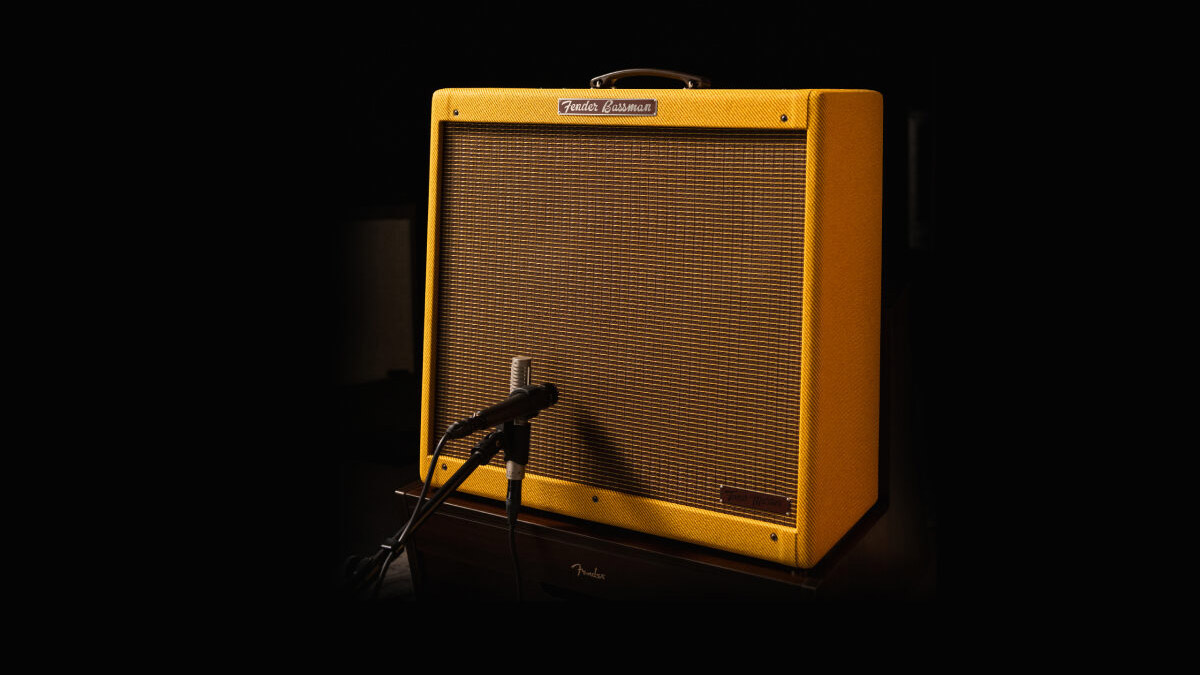
Having been originally launched as a bass amp before becoming one of guitar’s most beloved tube amps, Fender has now reimagined the Bassman for its Tone Master series.
This makes the notoriously hefty 4x10 combo a much lighter proposition, and one that will deliver the goods at low volume, with onboard power scaling to make it friendly for bedroom and stage alike.
The Tone Master ’59 Bassman follows the same design principles as its predecessors, with Fender pairing a meticulously accurate digital model of the original amp’s circuit with a Class D power amplifier.
In the Bassman’s case, we have 200-watts of solid-state power to emulate the 45-watts generated by the original tube-driven guitar amp – a reminder, if needed, that tube watts are louder.
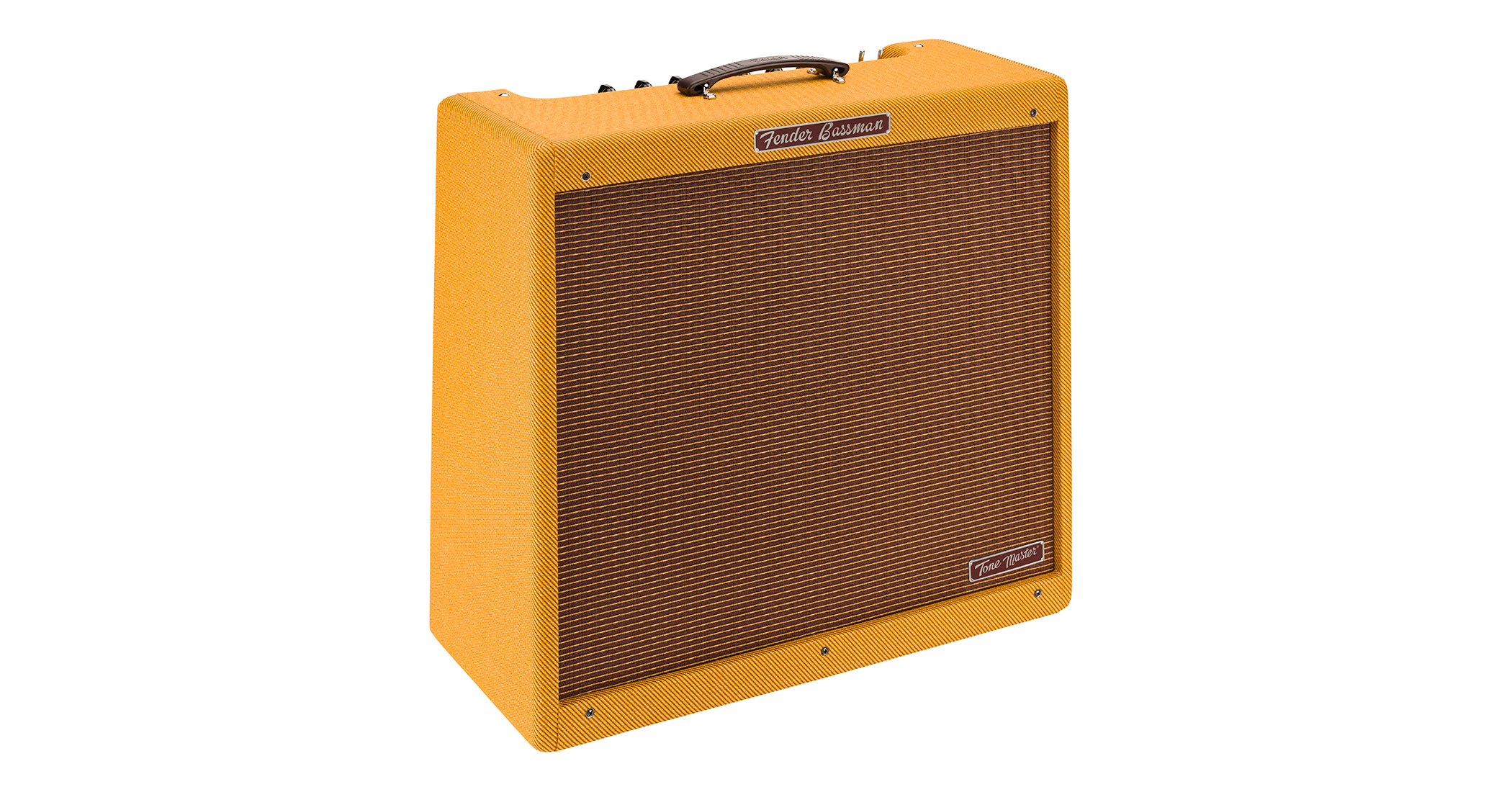
Not that you would notice too many differences from a distance. Besides the Tone Master badge on the grille cloth, from the audience's POV, this could pass for a pristine, box-fresh example of a Bassman 4x10 from 1959. You have the lacquered tweed finish and the brown and gold grille clothe. And based on previous Tone Master releases, it will have the tones.
There’s even a moulded Rubber “Dog Bone” Style handle on the top of the amplifier – and maybe with this version of the Bassmaster you will have the occasion to use it.
Anyone who has tried lifting one of the originals – or any similarly proportioned tube combo – will attest to how little help the handle on the top is, especially when confronted with a set of stairs.
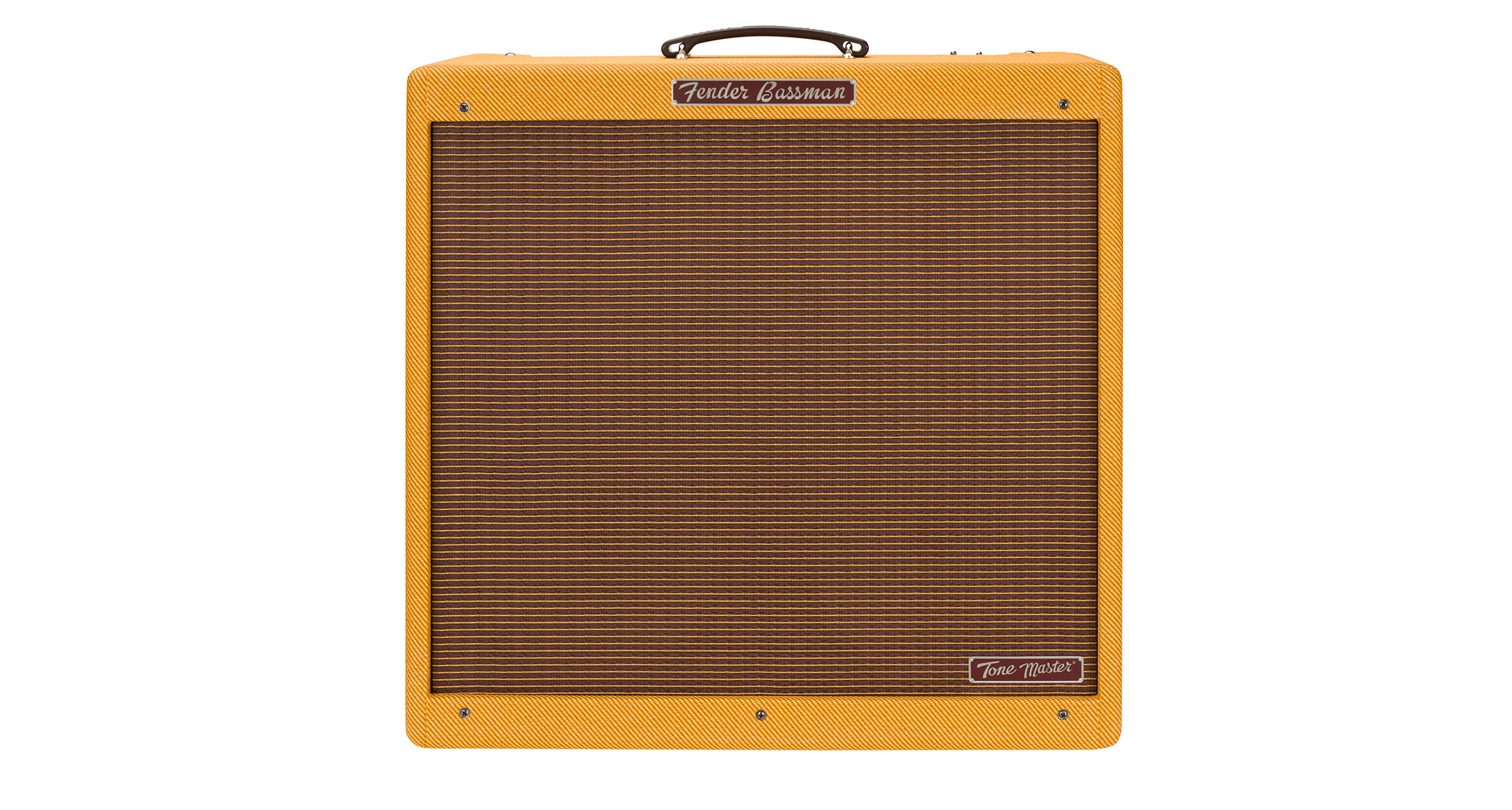
Well, there’s less of a worry on that score here. One of the Tone Master’s USPs is that lightweight design. With a quartet of 10” Jensen P-10R Alnico speakers housed inside a pine cabinet, you’re not lifting it with your pinkie — but it’s going be a lot more manageable.
It is also a more versatile amplifier, with Fender seizing the opportunity presented by this digitally modelled, solid-state powered design to fit the Bassman out with an effects loop and an XLR output with ground lift and level control, and cab sims to allow for direct recording or sending to a PA speaker system. The latter are selectable via slider switch.
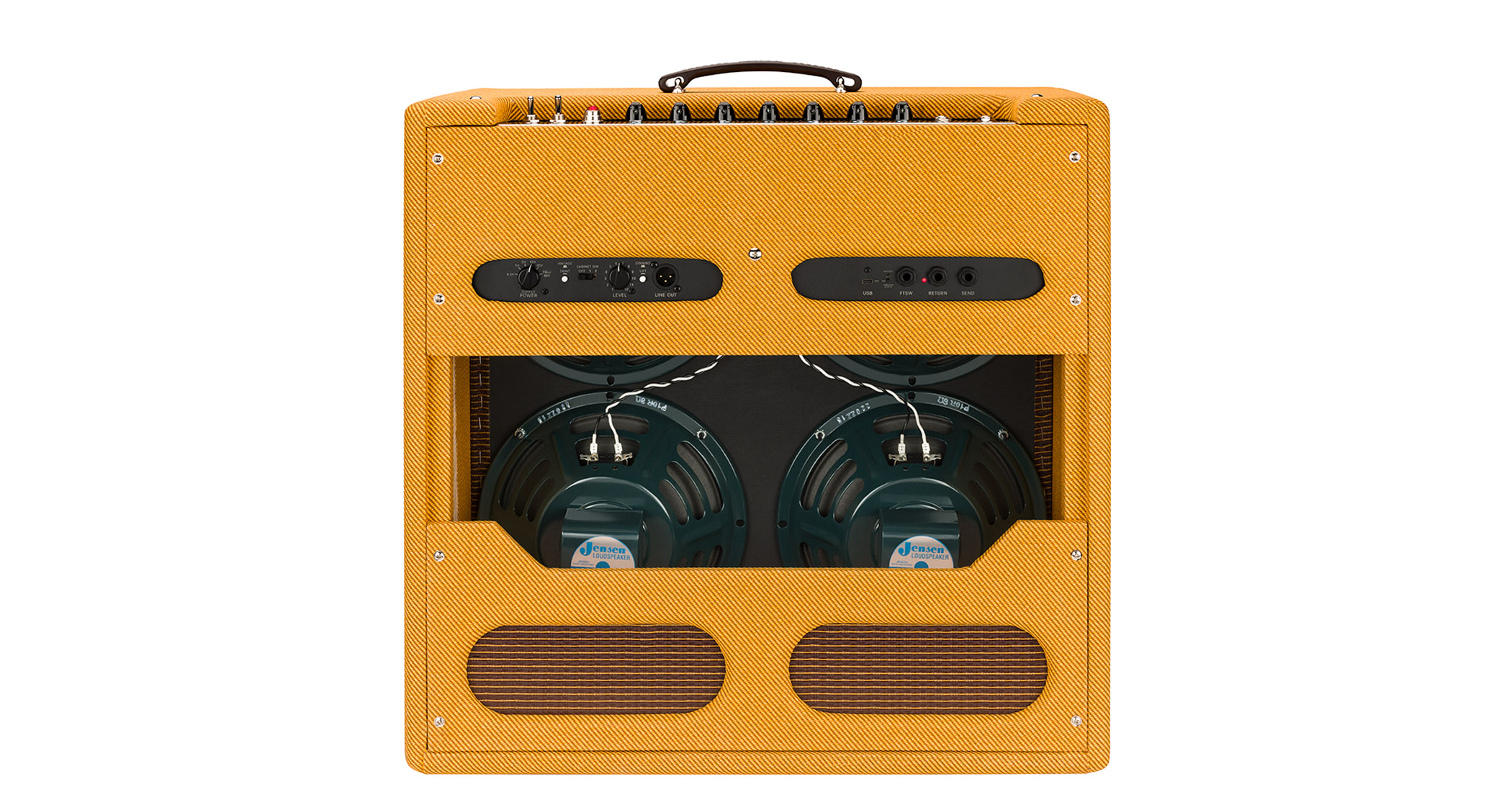
The five-position rotary dial for power scaling is one modern update that will get a lot of use. Players can select from a full-powered 45-watt setting (the power output options are listed in tube wattages), 22-watts, a Princeton-esque 12-watts, Champ-esque 5-watts, with your single-watt and half-watt settings giving you the opportunity to drive the amp at practice-friendly volume.
There is also a switch to alternate between Vintage and Tight modes, the latter doing exactly that, tightening up the low end, which could be especially useful if you've got some dirt pedals on the go.
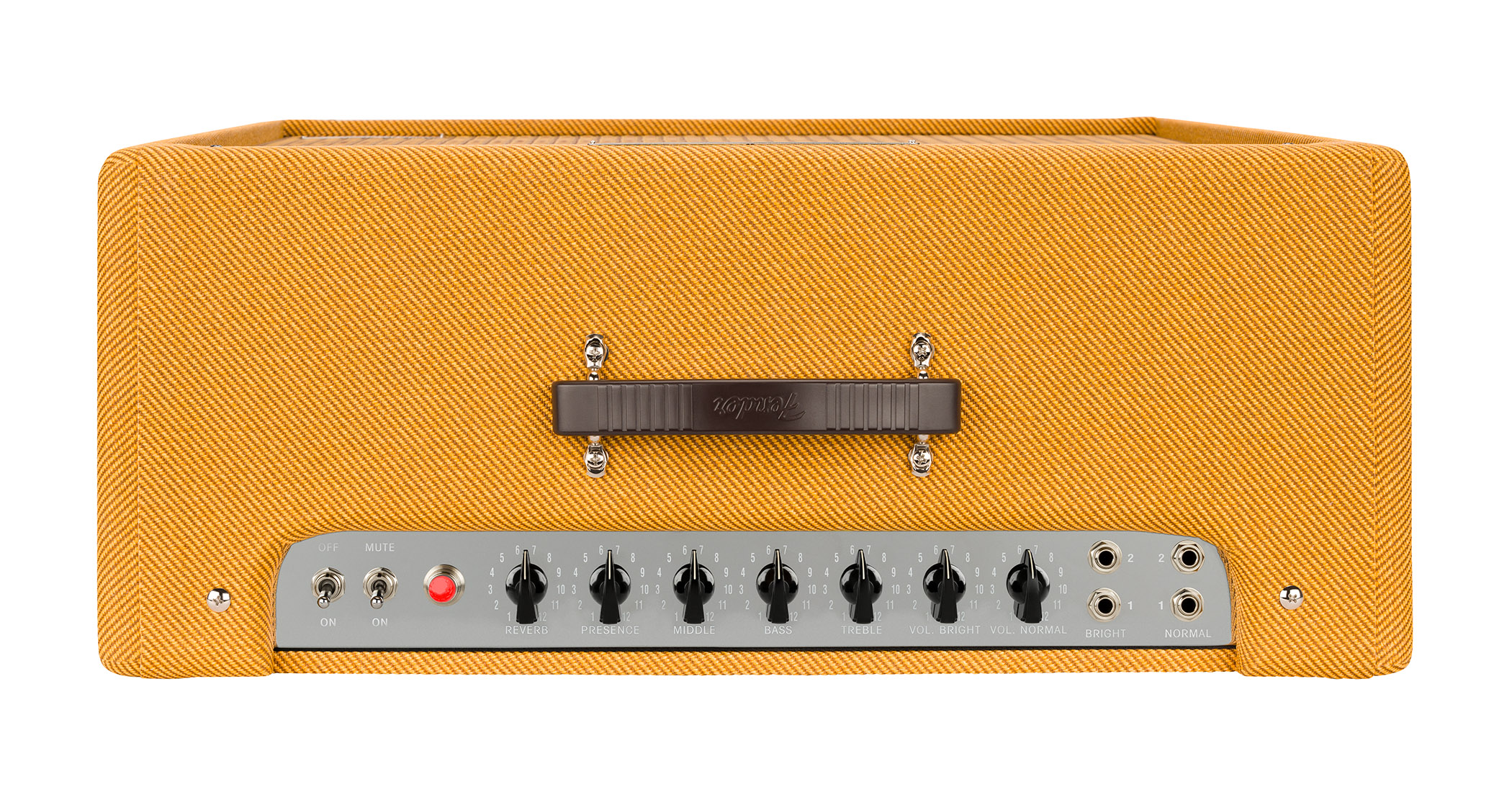
The control panel has volume controls for the two channels (Normal and Bright), plus Bass, Middle, Treble, and Presence, and while it might not be vintage-accurate for a ’59 Bassman or the reissue, we have reverb on the control panel.
No one is going to complain about the addition of reverb. This one is a convolution reverb, meaning it is an IR emulation of classic Fender amp reverbs from the mid-60s.
The Tone Master ’59 Bassman is available now, priced £1,429 / $1,499. See Fender for more details.







